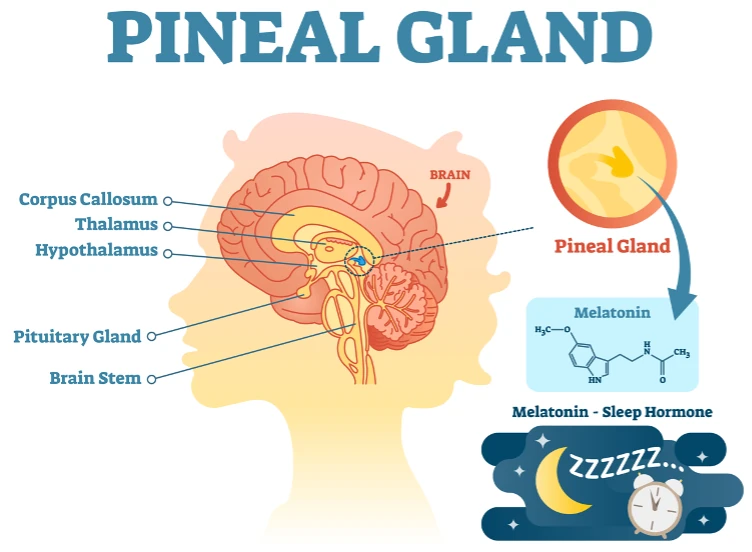A consistent and restorative sleep schedule is essential for optimal physical and mental well-being. However, many individuals struggle with disrupted sleep patterns, which can have far-reaching consequences on daily life. Sleep deprivation can affect various aspects of life, including work performance, relationships, and overall quality of life.
Regaining control over your sleep schedule is an achievable goal by implementing effective strategies and techniques. With the right approach and commitment, anyone can break free from the cycle of sleep deprivation and start enjoying the numerous benefits of quality sleep. This comprehensive article will guide you on evidence-based practices and proven methods to help you reclaim restful sleep.
Understanding sleep cycles
The human body operates according to an internal clock known as the circadian rhythm, which regulates various physiological processes, including the sleep-wake cycle. This 24-hour cycle is a biological timekeeper, synchronising our bodies with the natural day and night patterns. Just as a clock’s hands move in a circular motion, our circadian rhythms follow a predictable pattern, influenced by external cues such as sunlight exposure and temperature fluctuations. This internal clock is regulated by a group of neurons in the hypothalamus, known as the suprachiasmatic nucleus (SCN), which acts as the body’s master pacemaker.
Melatonin, a hormone produced by the pineal gland in the brain, plays a crucial role in regulating our sleep-wake cycle. As night falls, melatonin levels rise, induce drowsiness, and prepare the body for sleep. Conversely, melatonin production is suppressed during daylight hours, promoting alertness and wakefulness. This delicate balance between light exposure, melatonin secretion, and the circadian rhythm is essential for maintaining a consistent sleep schedule and ensuring optimal sleep quality.
Adhering to a consistent sleep schedule is vital for keeping our circadian rhythms in sync with the natural light-dark cycle. When our sleep patterns are disrupted due to irregular work schedules, jet lag, or other factors, our internal clock becomes desynchronised, leading to difficulty falling asleep, staying asleep, and daytime fatigue. Consequently, maintaining a regular sleep routine is crucial for optimising our sleep quality and promoting overall physical and mental well-being.
Busting myths: pulling an all-nighter to fix sleep schedule
While it may seem counterintuitive, pulling an all-nighter is ineffective for fixing a disrupted sleep schedule. This misconception stems from the belief that staying awake for an entire night will reset your body’s internal clock, allowing you to fall asleep at the desired time the following night. However, this approach can be counterproductive and detrimental to sleep quality and well-being.
Pulling an all-nighter increases your sleep debt, which is the accumulated sleep loss over time. Like a credit card balance, staying awake for an extended period adds to this debt, making it more challenging to recover and achieve a restorative sleep pattern. Additionally, forcing your body to override its natural sleep-wake cycle disrupts your circadian rhythm. This internal clock regulates various physiological processes, including sleep, hormone release, and body temperature regulation.
When you finally attempt to sleep after an all-nighter, the quality of your rest may be compromised, leaving you feeling groggy and unrested. Sleep deprivation can negatively impact the different stages of sleep, including the crucial deep sleep and rapid eye movement (REM) phases, which are essential for physical and cognitive restoration, memory consolidation, and emotional processing.
What should you do instead of pulling an all-nighter
A more effective approach than pulling an all-nighter is to make gradual adjustments to your sleep schedule. This method allows your body to adapt gradually to the new routine, minimising disruption to your daily commitments and promoting better overall sleep quality. The benefits of this approach include:
- Minimised disruption to your daily routine and commitments
- Allows your body’s circadian rhythm to realign with the desired sleep pattern naturally
- Promotes better overall sleep quality by avoiding the accumulation of excessive sleep debt
- Reduces the likelihood of experiencing adverse side effects, such as daytime fatigue and cognitive impairment.
- Improves mood and emotional regulation by establishing a consistent sleep-wake cycle
- Enhances productivity and concentration by combating sleep deprivation
- Supports healthy weight management and metabolism
- Lowers the risk of developing chronic health issues linked to poor sleep hygiene
To reset your sleep cycle using gradual adjustments, you can gradually shift your bedtime and wake-up times by 15-30 minutes every few days. This gentle approach lets your body gradually adjust to the new schedule, minimising the strain on your internal clock and reducing the risk of sleep disturbances.
Remember, consistency is vital when establishing a new sleep routine. Adhering to a regular sleep schedule, even on weekends, reinforces your body’s natural sleep-wake patterns, making it easier to fall asleep and wake up refreshed.
Practical steps to fix your sleep schedule
Restful sleep is highly beneficial, positively affecting your physical and mental health. However, developing good sleep habits is a gradual process that takes time and commitment. With dedication and perseverance, you can overcome the challenges of disrupted sleep and start a journey towards optimal health.
Setting a consistent sleep schedule
One of the most crucial steps in regaining control over your sleep is establishing a consistent sleep schedule. This means choosing a bedtime and wake-up time that aligns with your natural circadian rhythm and adhering to it rigorously, even on weekends. Consistency is essential to reducing your “sleep debt,” which refers to the accumulated hours of sleep deprivation over time.
Maintaining a regular sleep schedule reinforces your body’s internal clock and makes it easier to fall asleep and wake up at the designated times. Conversely, irregular sleep patterns can disrupt your circadian rhythm, making it more challenging to achieve restorative sleep. Remember, it may take time for your body to adjust to the new routine, so be patient and persistent. Sticking to the schedule, even when you may feel tempted to sleep in or stay up late, will pay off in the long run.
Harnessing the power of sunlight
Exposure to natural sunlight plays a vital role in regulating your circadian rhythm and promoting healthy sleep patterns. The bright light signals to your brain that it’s time to be alert, suppress melatonin production and promote wakefulness. Upon waking, prioritise spending time outdoors or near a window that allows natural light to enter. Even as little as 15-20 minutes of sunlight exposure in the morning can help synchronise your internal clock and set the stage for a productive day. Conversely, limiting exposure to bright light in the evening can help facilitate the natural rise in melatonin levels, preparing your body for sleep.
If you work in an environment with limited natural light exposure, consider investing in a light therapy box or lamp. These devices mimic the effects of sunlight and can help regulate your circadian rhythms, especially during the darker winter months when natural light exposure is limited.
Crafting a relaxing bedtime routine
As bedtime approaches, it can be helpful to create a calming routine that signals to your body that it’s time to wind down and prepare for sleep. Establishing a consistent routine can help you transition smoothly from the day’s demands to a restful state conducive to quality sleep.
Consider incorporating activities that promote relaxation, such as taking a warm bath, practising gentle stretching or yoga, reading a book, or engaging in deep breathing exercises or meditation. These practices can help quiet your mind, lower your heart rate, and reduce muscle tension, making it easier to drift off into a peaceful slumber. It’s also helpful to establish a regular pre-bedtime routine that involves winding down activities, such as dimming the lights, turning off electronic devices, and creating a tranquil environment free from distractions. Consistency in this routine can reinforce your body’s natural sleep-wake cycle, making it easier to fall asleep at the desired time each night.
Optimising your sleep environment
The environment in which you sleep plays a crucial role in the quality of your rest. To create an optimal sleep environment, aim for a calm, dark, quiet, and clutter-free space that promotes relaxation and minimises distractions. Invest in blackout curtains or an eye mask to block out any external light sources that could disrupt your sleep. Earplugs or a white noise machine can help mitigate disruptive sounds, ensuring a tranquil atmosphere. Additionally, ensure that your mattress and pillows are comfortable and supportive, as a restful sleep position can prevent aches and pains that may interfere with your sleep quality.
Maintaining a cool, well-ventilated bedroom is also essential for quality sleep. Most experts recommend keeping the room temperature between 20-25°C for optimal sleep. Using a fan, air conditioning, or opening a window can help regulate the temperature and improve air circulation in the bedroom.
Prioritising sleep hygiene
Sleep hygiene refers to practices and habits promoting better sleep quality and duration. Good sleep hygiene practices can create an environment conducive to restful slumber and minimise potential sleep disturbances. One essential sleep hygiene practice is to avoid consuming caffeine and alcohol several hours before bedtime, as these substances can interfere with your ability to fall asleep and stay asleep. Caffeine is a stimulant that can disrupt your sleep cycles, while alcohol may initially help you fall asleep but can fragment your sleep later in the night.
Additionally, limit exposure to blue light from electronic devices, such as smartphones, tablets, and computers, in the evenings. This type of light can suppress melatonin production and disrupt your circadian rhythm. Consider installing blue light filters on your devices or using blue light-blocking glasses in the hours leading up to bedtime.
Regular exercise can also improve sleep, as physical activity helps regulate your body’s natural sleep-wake cycle. Some sources would advise to avoid intense workouts close to bedtime, as this could be stimulating and potentially make it harder to fall asleep. However, it is important to remember that this might not be the case for everybody, and some people can exercise late in the evenings without this having an adverse impact on their sleep
Finally, pay attention to your diet and avoid heavy, spicy, or sugary meals close to bedtime. These can cause discomfort and digestive issues that may interfere with sleep quality. Instead, opt for lighter, easier-to-digest snacks or meals if you need to eat close to bedtime.
Maintaining your healthy sleep pattern
Resetting your sleep cycle is a gradual process that requires patience and consistency. It’s important to understand that significant changes to your sleep schedule take time to happen. Typically, your body can take a few days to a week to adapt to a new sleep routine.
Rather than attempting drastic changes to your sleep schedule, it is recommended that you make small, incremental adjustments. For instance, you could shift your bedtime and wake-up time by 15-30 minutes every few days, allowing your body to adjust to the new pattern gradually. Trying to force a significant shift simultaneously can be counterproductive and may lead to increased sleep disturbances and fatigue.
Once you’ve established a consistent sleep schedule that aligns with your natural circadian rhythm, it’s crucial to maintain this routine, even on weekends. Many people fall into the trap of staying up late and sleeping in on their days off, which can disrupt the progress made during the week. Adhering to your set sleep and wake times reinforces your body’s internal clock and promotes better sleep quality, improving overall health and well-being.
Consistency is vital in regulating your circadian rhythm and achieving restorative sleep. However, life can sometimes throw curveballs that disrupt your routine, such as unexpected events, travel, illness or changes in work schedules. In these situations, it’s essential to make an effort to return to your established sleep schedule as soon as possible to minimise the impact on your sleep quality.
To maintain healthy sleep habits in the long run, consider incorporating helpful strategies like setting reminders for your bedtime routine, creating a relaxing sleep environment, and consistently practising good sleep hygiene habits. Additionally, be mindful of factors that may negatively impact your sleep, such as stress, caffeine consumption, or screen time before bed, and adjust accordingly.
When to seek help: addressing underlying sleep disorders
If you have implemented the recommended lifestyle changes and still experience persistent sleep problems, it may be an indication of an underlying sleep disorder. Sleep disorders such as insomnia, sleep apnea, restless leg syndrome, or other conditions can profoundly impact one’s ability to achieve restorative sleep.
A sleep psychiatrist can conduct a comprehensive evaluation, including assessing if a sleep study is necessary, to identify any potential sleep disorders or underlying medical conditions contributing to your sleep difficulties. Sometimes, treatment may involve medications, cognitive-behavioural therapy, or other interventions tailored to your specific needs. Seeking professional help can be instrumental in addressing the root causes of your sleep problems and developing an effective treatment plan to improve your sleep quality and overall well-being.
As a leading sleep physician and psychiatrist, we offer consultations for those having trouble sleeping. Please contact us and schedule an appointment if you require professional guidance and support in addressing your sleep difficulties.










